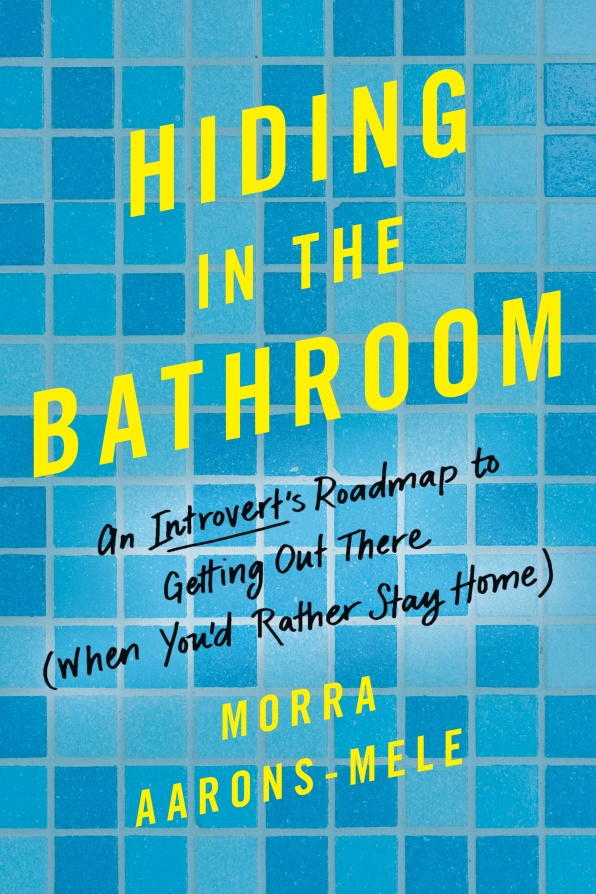This Introvert’s Secret To Happiness: Be Less “Successful”
By Morra Aarons-Mele
“I have the dubious distinction of being an ambitious risk taker who also struggles with anxiety and depression,” I told the roomful of 200 successful women, some of whom had been my college classmates. “This has forced me to learn some very helpful coping mechanisms,” I said, but only after learning some unhelpful coping mechanisms.
I was giving a speech at my alma mater, where years earlier, I’d had more than my fair share of panic attacks. There was the time sophomore year when I couldn’t get out of bed for a week. There was the hiding in my dorm room, and later in my apartments. For a while I sought geographical cures, moving to different cities, like London, and even farther-away continents, like Africa.
As a young woman, I wanted so badly to be liked, and to do everything right. I felt it was expected of me. I’d been the kid who cried at sleep-away camp and wouldn’t let my mother and sister leave on my first night at college. I only wanted home, and comfort. Instead, I dealt with its absence like many young people do: through eating, drinking, and hookups.
After college, I went for every big job and opportunity I could. I ran marketing for Europe’s largest online travel company when I was 25. I kept getting promoted, and I kept being miserable. The work was easy, but the office politics, the hours, the pace, the networking, and the rules of getting ahead grated against my temperament.
Before I hit 30, I’d quit nine jobs and was crying in the bathroom almost every day. I was living out someone else’s climb-up-the-ladder, and I was fighting a losing battle. I realized that who I was and what I was doing were completely mismatched—and that if I was ever going to be happy, I would need to become less conventionally “successful.”
Kicking My Achievement Addiction
After my speech, many of the women in the room came up to thank me. Some were crying. One young woman, a senior economics major, said, “I’m just so tired of trying to be this perfect person.” Like me, and many in the audience, she was on both antidepressants and anti-anxiety medication.
In the 22 years since I entered college, it’s only gotten worse. The achievement pressure starts at birth and snowballs from there. When a good friend, my commiserator in the high-stakes process of applying to private kindergarten in Los Angeles, visited her alma mater, the admissions director told her, “You wouldn’t recognize the program. It’s much more challenging than it was when you were here.”
Even to this day, I don’t like to visit college campuses—and my husband is a professor! I can feel the echoes of anxiety and profound loneliness so strongly. And it’s not only me. A recent Duke study found that women who graduated in the 1970s were much happier than those graduating now, and had far more self-confidence. The report concluded that the women who graduated in the 70s cared less about what people thought of them, and were able to take risks—such as pursuing nontraditional careers or starting their own businesses. In fact, women seem to be increasingly less happy, even as they achieve more professionally.

Ambitious and privileged young people on the path to college are raised with a narrative of achievement—a surround-sound, multifaceted version—that no generation has experienced before. With the addition of social media, you’re supposed to share all your infinite successes, too—as you suffer the FOMO of watching everyone else seemingly sail through life.
The expectations are impossible for most to meet, yet in my experience they’re even more difficult if you’re an introvert. If you need more control over your space, pace, and place of work than others, the traditional career-ladder approach to success is all the more daunting—and possibly futile.
The Overachiever Index
But let me be clear: When introverts like me realize that the success they’re chasing isn’t making them happy, it’s not because they’re lazy or unambitious.
Your need for a different kind of workday has nothing to do with the level of effort you will put in, or the drive you possess. That’s ingrained in who you are just as much as your need for quiet or alone time. When you work differently, it may even mean you work harder than others. I might be a hermit who rarely eats lunch with anyone, but ask anybody who knows me and they will agree: I work hard and I am driven as hell. (They just don’t know I’m usually working in bed.)
To find out whether you’re addicted to a form of achievement that doesn’t suit you, answer these questions–but don’t worry, it isn’t an exact science. In fact, there’s no score needed here; you know it when you see it.
- You regularly get nine hours of sleep, and you feel guilty.
- You’re really sick. But no one needs to know. (Cough.)
- You only got 720 on your GMAT.
- You lost five pounds. Time for the next five.
- You’ve actually made up boyfriends for your parents. They’d worry if you were single.
- Work isn’t enough: You need to join a board or volunteer or start a nonprofit.
- You hired a designer for your 3-year-old’s preschool project.
- You don’t let anyone over unless the house is perfectly clean.
- Nothing store-bought will tarnish your Thanksgiving table.
- After your (99% glowing) performance review, you can’t stop thinking about the one piece of negative feedback you got from your boss.
- Reading about your former college roommate’s new startup totally ruins your day, but you obsessively search Google for more news.
Kicking these habits isn’t easy. It takes time and a lot of trial and error, some of it painful. But the first step is recognizing when the type of success you’re pursuing doesn’t make you feel happy, fulfilled, or valuable. There’s probably something else that will—you just need to find it.
This article is adapted with permission from Hiding in the Bathroom: An Introvert’s Roadmap to Getting Out There (When You’d Rather Stay Home) by Morra Aarons-Mele.
Fast Company , Read Full Story
(21)














